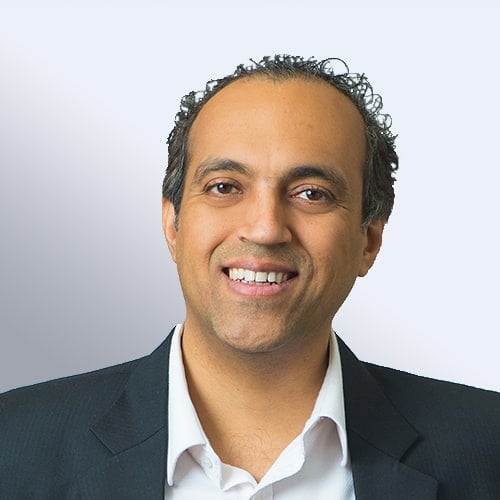
What if a service provider could build itself from scratch based on the learnings from the past two decades? Liberty Source, launched in 2013 as an impact sourcing provider, is trying to do just that in the highly competitive finance & accounting (F&A) outsourcing market. It has agreed to share its story with us as its business continues to scale.
Our first discussion with Steve Hosley, CEO of Liberty Source, provided an overview of their journey thus far. Our next discussion began our detailed look at Liberty Source’s talent model, which continues below with insights on its challenges and benefits.
Eric: Once an employee is onboard, what is the design for her or his development and career path?
Steve: Many organizations follow a typical succession planning and talent management process to aid in guiding their employees down their career paths in which they are aligned with the goals of the company. Where we differ is the frequency of this review and the involvement of our clients.
Because our mission speaks to providing job progression opportunities, our first client agreed to the formation of an employee development committee that meets on a quarterly or semi-annual basis to aid us in evaluating our talent management program for employees assigned to its account. This dialogue provides us with great insight into current and future required skills. While the jobs may be entry to mid-level careers at Liberty Source, the longer-term partnership we take with our clients allows us to create and grow “farm teams” to form talent pipelines that are extensions of our clients’ talent planning models.
Career paths are individually determined and then taken into account when we perform our regular talent review discussions. While employees may be in a role associated with a Finance and Accounting career path, some employees have indicated they would like to pursue other areas of responsibility. To support their development, we use creative networking and affinity groups in a different way to provide extra-curricular opportunities for them to pursue and grow their interests.
Eric: This is a fairly different type of people model. How have you adjusted the management model to reflect this?
Steve: First off, we commonly refer to our managers as coaches because we believe this is the kind of culture we are building. We have to focus on non-traditional techniques. Most of the BPO world is set up to manage in-person and face-to-face. The mission we are on changes the very nature of this relationship because the majority of our people are destined to relocate or telework. We have to manage virtually, create touch points that factor in different time zones and modes of communication, and manage client expectations differently.
We also allow for more independent and direct communication with the client. Ordinarily this is highly filtered by the BPO organization. We remove as much of the go between as possible to allow for the transparent process we promise to our clients. Once the employee is up to speed and producing, they own this relationship in most cases.
The typical command and control model that drives a directive, task-oriented communication style is replaced with a coaching and mentoring model. This view of leadership vs. management permeates how we engage employees to own their work more directly and learn how to transform it to a more efficient and scalable plan for the long term.
Eric: With all these modifications to normal people practices, it would seem that Liberty Source’s culture must be distinctive. Can you comment on what defines the culture?
Steve: Liberty Source is a place to come home to. Stable careers, flexibility in workplace and schedules, and with a common goal of being a place where employees come to transform their careers and customers come to transform their work. To achieve this, we have to translate what our employees may be used to and begin to train, teach, and coach on commercial culture norms and expectations. Some of our employees may be working in a sophisticated office setting for the first time, so we cannot expect everyone to come to the job without clearly defining rules of engagement and a structure to follow. We came up with a few simple principals to help guide a way of thinking and acting based on language they might already be used to. These six principles are:
- Own it: We take personal responsibility to get our tasks done, meeting or exceeding both our clients’ and colleagues’ expectations.
- Learn and lean: We look at every task or process as a learning experience, and don’t hesitate to lean on others for help.
- Know our clients: We know what drives our clients’ success, and make decisions that support their business.
- Know your numbers: We always know our performance metrics, and what we’ve committed to our clients.
- No surprises: If something gets in the way of our performance, we immediately flag the situation to our management and our clients
- No boundaries: Performance has no limits. We always look for opportunities outside our scope of responsibility to make a difference.
We also rely on a family approach to bring everyone to the table to resolve challenges. There is a level of honesty and support that comes from a family-centered view. You don’t get this in a commercial setting, and we tap in to it to gain trust and thus create strength.
Eric: What are the biggest opportunities and challenges you see for the talent model to continue scaling and evolving?
Steve: We still believe there is work to be done in better leveraging localized municipal community colleges as well as tapping into SaaS providers for training as well. Our size impacts the number of resources we can tap. To move past this, we are fortifying partnerships to expand our capability to expand learning and development goals.
The power of the Liberty Source family is in their sense of mission. It is easy to convey to this community that the success that you and the organization achieve now with our clients will create a wake of opportunity for future deserving spouses and veterans – and on behalf of those future spouses and veterans, we thank you for your commitment to Liberty Source. This message typically would not resonate in a BPO operation, but at Liberty Source it is “all hands on deck.” We strongly believe that the human capital model we have designed will directly translate to commercial differentiation in the market through low attrition and a committed workforce.
Eric: What are the benefits of the Liberty Source talent model in comparison to traditional BPO models?
Steve: Access to untapped, capable talent that fits – with our deep ties, affiliations and tools we have access to talent that is not readily apparent to the typical BPO. This is paying off in a couple ways:
- Dedication: We have single digit attrition which is directly attributed to our dedicated military community and the culture we have formed. Typical BPOs have higher levels of turnover and much less social impact than we do. This retention creates the opportunity to transform work for our clients. We have a workforce that is highly engaged in the work of Liberty Source and wants to see us succeed like we’ve not seen in our previous commercial experiences. We’d like our current and future clients to see what can happen when full engagement is in action.
- Agility: Our proximity to our clients and our EQ lends itself to less cycles and revisions. We get hand-offs right the first time.
- Continuous improvement: This has long been an elusive goal of BPO providers. At Liberty Source we are committed to growing our employees and a big part of achieving that is through transforming our clients work so the type of Liberty Source work begins to elevate. This in turn elevates the abilities of our team.
- Connection to Corporate Social Responsibility (CSR): Companies should no longer think of their CSR activities independently from the operation of their company. At Liberty Source, we deliver services at a commercial standard and our clients also get the benefit of evangelizing about our amazing social story as well.
Eric: What could others learn from Liberty Source’s experiences?
Steve: Major misconceptions are tied to spotty résumés and unrecognizable military terms and experiences. This is the primary reason the military spouse has challenges in achieving their full potential. If you focus clearly on what defines success in the role and manage to that in your selection, in your goal setting, and in your rewards you can really achieve a lot and help someone really deserving achieve their potential. Lastly, given that many of our staff originate from a command and control hierarchy, empowerment needs to be consistently reinforced to generate their optimal performance.
Eric: Thanks for sharing these insights with us. It is stimulating to think about how much a people model and culture can be designed to align to a particular targeted talent pool. I look forward to hearing more about Liberty Source’s continued journey in a couple more months.










